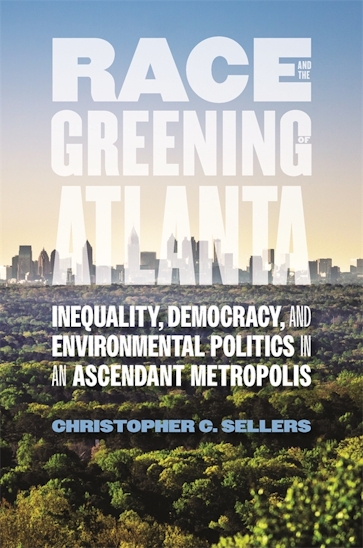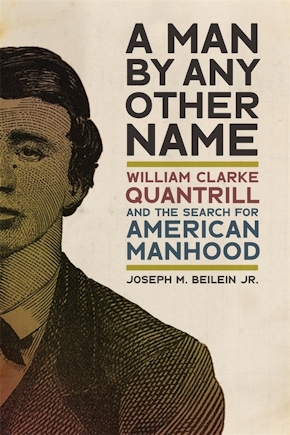Race and the Greening of Atlanta
Inequality, Democracy, and Environmental Politics in an Ascendant Metropolis
Title Details
Pages: 442
Illustrations: 13 b&w images
Trim size: 6.000in x 9.000in
Formats
Paperback
Pub Date: 08/15/2023
ISBN: 9-780-8203-4408-9
List Price: $39.95
Hardcover
Pub Date: 08/15/2023
ISBN: 9-780-8203-4407-2
List Price: $114.95
eBook
Pub Date: 08/15/2023
ISBN: 9-780-8203-6419-3
List Price: $39.95
eBook
Pub Date: 08/15/2023
ISBN: 9-780-8203-6420-9
List Price: $39.95
Related Subjects
SOCIAL SCIENCE / Race & Ethnic Relations
POLITICAL SCIENCE / Public Policy / Environmental Policy
HISTORY / United States / State & Local / South (AL, AR, FL, GA, KY, LA, MS, NC, SC, TN, VA, WV)
Race and the Greening of Atlanta
Inequality, Democracy, and Environmental Politics in an Ascendant Metropolis
A sweeping history of Atlanta’s environmental policies and transformations through the prism of race
Skip to
- Description
- Reviews
Race and the Greening of Atlanta turns an environmental lens on Atlanta’s ascent to thriving capital of the Sunbelt over the twentieth century. Uniquely wide ranging in scale, from the city’s variegated neighborhoods up to its place in regional and national political economies, this book reinterprets the fall of Jim Crow as a democratization born of two metropolitan movements: a well-known one for civil rights and a lesser known one on behalf of “the environment.” Arising out of Atlanta’s Black and white middle classes respectively, both movements owed much to New Deal capitalism’s undermining of concentrated wealth and power, if not racial segregation, in the Jim Crow South.
Placing these two movements on the same historical page, Christopher C. Sellers spotlights those environmental inequities, ideals, and provocations that catalyzed their divergent political projects. He then follows the intermittent, sometimes vital alliances they struck as civil rights activists tackled poverty, as a new environmental state arose, and as Black politicians began winning elections. Into the 1980s, as a wealth-concentrating style of capitalism returned to the city and Atlanta became a national “poster child” for sprawl, the seedbeds spread both for a national environmental justice movement and for an influential new style of antistatism. Sellers contends that this new conservativism, sweeping the South with an antienvironmentalism and budding white nationalism that echoed the region’s Jim Crow past, once again challenged the democracy Atlantans had achieved.
—Andrew C. Baker, author of Bulldozer Revolutions: A Rural History of the Metropolitan South
Race and the Greening of Atlanta meshes environmental history with social and political history in creative and compelling ways. Sellers’ ambitious periodization and decision to extend his study deep into recent history gives the book staying power in a discipline constantly playing catch-up with the present.
—Jason Morgan Ward, author of Hanging Bridge: Racial Violence and America's Civil Rights Century



